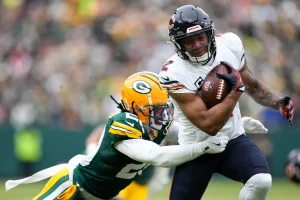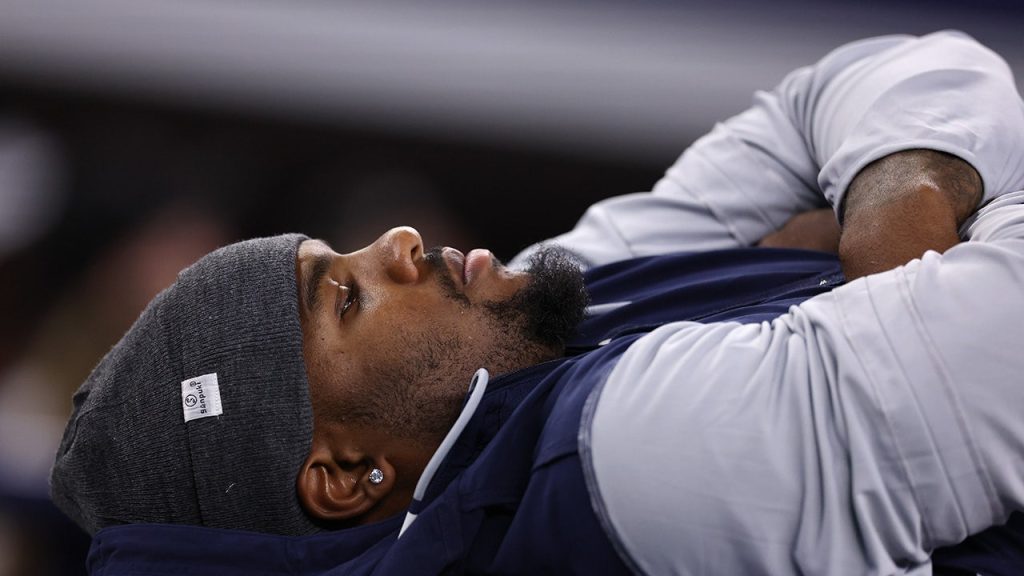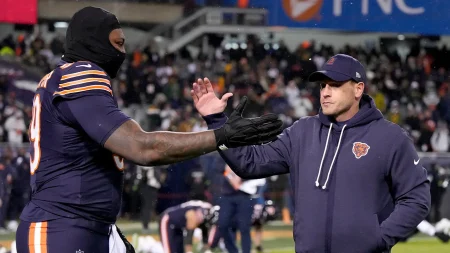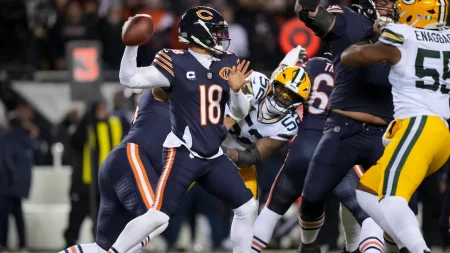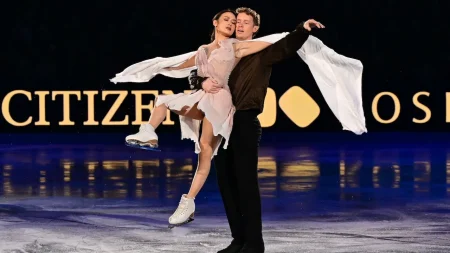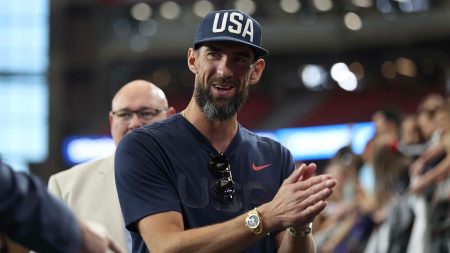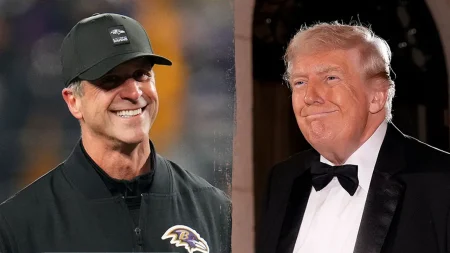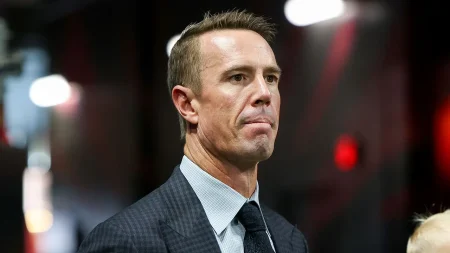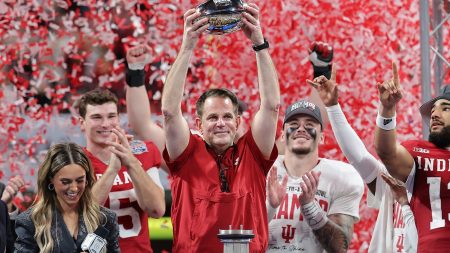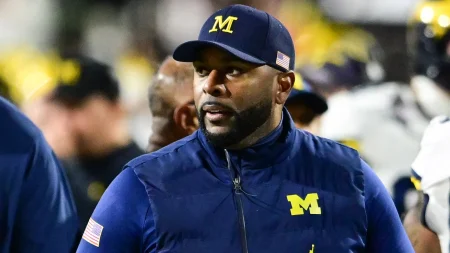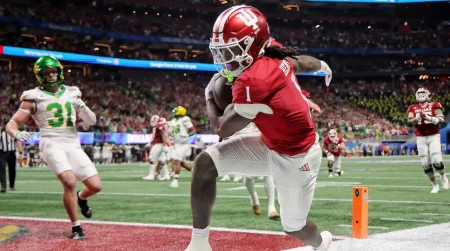Micah Parsons’ Sideline Controversy Amid Cowboys Contract Dispute
In the Dallas Cowboys’ preseason finale against the Atlanta Falcons, star pass rusher Micah Parsons made headlines not for his on-field performance, but for his sideline behavior. Though he didn’t play in the Cowboys’ dominant 31-13 victory, cameras caught Parsons eating nachos before kickoff and later appearing to rest on a training table during offensive possessions. These seemingly innocuous actions quickly sparked controversy in NFL circles, highlighting the intense scrutiny top players face even during preseason games. Parsons took to social media to defend himself, expressing frustration at how media narratives can shape public perception. “I actually appreciate this. The way media shapes perception and narratives is wild,” Parsons responded to a reporter who clarified he was on the table for only a “relatively short portion” of the game. The three-time All-Pro emphasized he would “never disrespect the guys out there fighting for their lives,” suggesting his actions were being misinterpreted or overblown in the midst of his ongoing contract situation.
The situation becomes more nuanced with teammate Trevon Diggs’ comments suggesting Parsons might have been dealing with back soreness. “It depends on how his back feels. I know he was real sore this morning. He went and got it checked out,” Diggs revealed, indicating Parsons may have recently undergone an MRI. Cowboys coach Brian Schottenheimer, meanwhile, claimed he wasn’t aware of Parsons’ behavior during the game. The 26-year-old defensive star, who has recorded double-digit sacks in each of his four NFL seasons despite missing four games last year, opted not to speak with media following the game, which only intensified speculation about his status with the team.
This sideline episode unfolds against the backdrop of increasingly tense contract negotiations between Parsons and the Cowboys organization. Parsons has publicly requested a trade as he enters the fifth-year option of his rookie contract, seeking the lucrative long-term deal his performance seemingly warrants. Cowboys owner Jerry Jones has been adamant about not trading the defensive standout, recently telling former Cowboys star Michael Irvin that he had already made concessions in negotiations. Jones specifically placed blame on Parsons’ agent, David Mulugheta, claiming: “We were going to send [an offer] over to the agent and the agent said don’t bother because we’ve got all that to negotiate. Well, I’d already negotiated. I’d already moved off my mark on several areas.”
The public finger-pointing escalated when Mulugheta reportedly denied Jones’ characterization of events. According to ESPN analyst and former NFL player Ryan Clark, Mulugheta insisted that Jones’ claims “never happened.” Clark didn’t mince words in his assessment: “This is just another public way to make this situation, which is already ugly, even uglier. David Mulugheta in no way has ever told Jerry Jones or any other general manager or owner that. It’s all bull crap. It’s all lies.” These contradictory statements suggest communication breakdowns and deteriorating trust between the parties, complicating an already difficult negotiation.
The Parsons situation exemplifies the modern NFL’s complex relationship between player empowerment and team control. Elite players like Parsons, who has established himself as one of the league’s premier defensive talents since being drafted, increasingly expect contracts commensurate with their market value and on-field impact. Teams, meanwhile, must balance salary cap considerations, precedent-setting concerns, and maintaining leverage in negotiations. Jones, known for his business acumen and sometimes hardline approach to contracts, seems unwilling to yield to Parsons’ demands or trade requests, creating a potential standoff that could affect team chemistry as the regular season approaches.
As it stands, Parsons will enter the 2025 regular season playing under the fifth-year option of his rookie contract unless an agreement is reached or a trade materializes. The situation remains fluid, with both sides seemingly entrenched in their positions. What began as a minor sideline controversy during a preseason game has highlighted the underlying tensions between one of the NFL’s most recognizable franchises and one of its brightest defensive stars. For Cowboys fans, the hope is that these business disagreements won’t overshadow the team’s on-field performance or diminish Parsons’ effectiveness as a game-changing defender when meaningful games begin. In the high-stakes world of NFL contracts, especially involving marquee players and America’s Team, even nacho-eating and brief rest periods become fodder for speculation about a player’s commitment and future with the organization.
